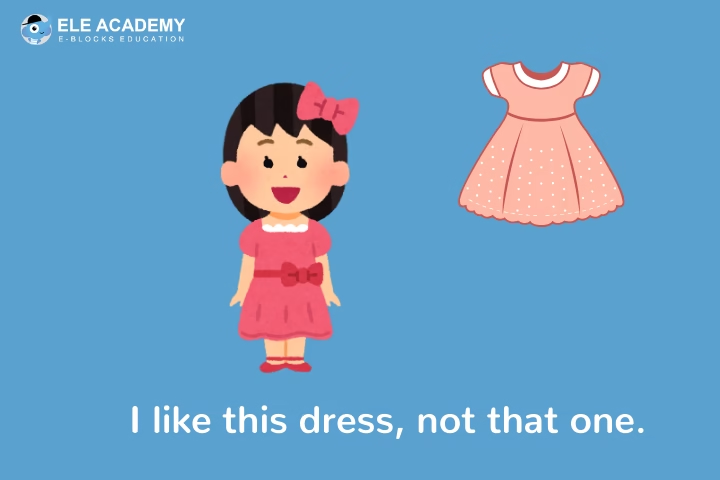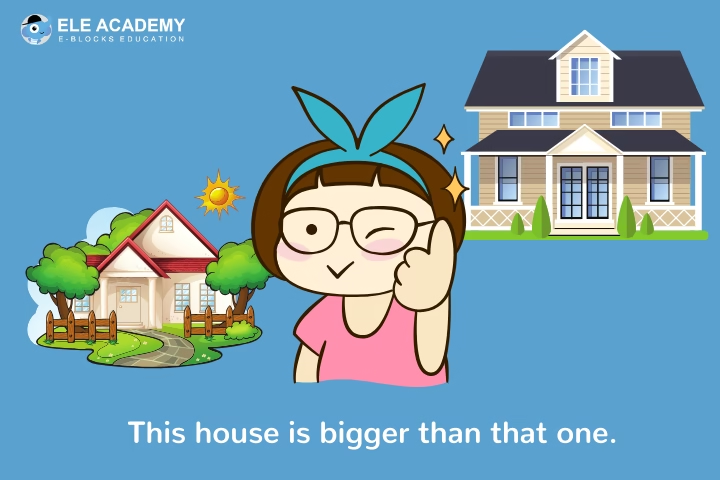Tính từ trong tiếng Anh là một trong những thành phần quan trọng giúp bạn miêu tả, biểu đạt cảm xúc và đầy màu sắc cho câu văn. Việc nắm vững danh sách các tính từ phổ biến sẽ giúp bạn tăng khả năng giao tiếp, viết lách và đạt được độ tự nhiên trong việc sử dụng ngôn ngữ. Hãy cùng khám phá danh sách hơn 100 tính từ trong tiếng Anh phổ biến nhất ngay dưới đây!
Tính Từ Trong Tiếng Anh Là Gì?
Tính từ trong tiếng Anh là từ dùng để miêu tả tính chất, trạng thái, đặc điểm của danh từ (người, sự vật, sự việc). Chúng giúp bổ sung thông tin, làm rõ ý nghĩa của danh từ trong câu.
Phân Loại Tính Từ Trong Tiếng Anh
Tính từ trong tiếng Anh có thể được phân loại theo nhiều cách, nhưng phổ biến nhất là theo chức năng và ý nghĩa:
Tính từ mô tả (Descriptive Adjectives):
Dùng để diễn tả đặc điểm, tính chất của danh từ.

- Ví dụ: beautiful (đẹp), strong (mạnh mẽ), intelligent (thông minh).
- She is a beautiful girl. (Cô ấy là một cô gái xinh đẹp.)
Tính từ chỉ số lượng (Quantitative Adjectives):
Dùng để chỉ số lượng hoặc mức độ của danh từ.

- Ví dụ: many (nhiều), few (ít), several (một vài).
- I have many books. (Tôi có nhiều sách.)
Tính từ trong tiếng Anh chỉ sự sở hữu (Possessive Adjectives):
Dùng để chỉ sự sở hữu của một danh từ.

- Ví dụ: my (của tôi), his (của anh ấy), their (của họ).
- That is my car. (Đó là chiếc xe của tôi.)
Tính từ trong tiếng Anh chỉ sự phân loại (Demonstrative Adjectives):
Dùng để xác định danh từ nào đang được nhắc đến.

- Ví dụ: this (này), that (kia), these (những… này), those (những… kia).
- I like this dress, not that one. (Tôi thích chiếc váy này, không phải chiếc kia.)
Tính từ trong tiếng Anh chỉ sự nghi vấn (Interrogative Adjectives):
Được sử dụng trong câu hỏi để bổ sung thông tin về danh từ.

- Ví dụ: which (cái nào), what (cái gì), whose (của ai).
- Which book do you want? (Bạn muốn cuốn sách nào?)
Tính từ trong tiếng Anh chỉ mức độ (Degree Adjectives):
Dùng để so sánh giữa các đối tượng.

- Ví dụ: taller (cao hơn), most beautiful (đẹp nhất), less interesting (ít thú vị hơn).
- This house is bigger than that one. (Ngôi nhà này lớn hơn ngôi nhà kia.)
Tính từ trong tiếng Anh chỉ sự phân bổ (Distributive Adjectives):
Dùng để chỉ từng cá nhân hoặc vật riêng lẻ trong một nhóm.

- Ví dụ: each (mỗi), every (tất cả), either (một trong hai), neither (không cái nào trong hai).
- Each student must submit their homework. (Mỗi học sinh phải nộp bài tập về nhà.)
Danh Sách Hơn 100 Tính Từ Trong Tiếng Anh Phổ Biến
Dưới đây là danh sách các tính từ phổ biến được phân loại theo từng nhóm để bạn dễ học và áp dụng:
Tính từ miêu tả tính cách con người
| STT | Tính từ | Ví dụ cụ thể |
| 1 | Kind | She is always kind to everyone, helping whenever she can. |
| 2 | Honest | An honest person always tells the truth. |
| 3 | Brave | He was brave enough to stand up for his friends. |
| 4 | Friendly | The new student is very friendly and talks to everyone. |
| 5 | Hardworking | She is a hardworking student who studies late every night. |
| 6 | Confident | He is confident when speaking in front of a large audience. |
| 7 | Generous | My aunt is so generous, she always shares what she has. |
| 8 | Polite | He is very polite and always says “thank you.” |
| 9 | Creative | She is a creative artist who paints amazing pictures. |
| 10 | Responsible | A responsible person always finishes their work on time. |
| 11 | Optimistic | She remains optimistic even in difficult times. |
| 12 | Patient | A patient teacher listens carefully to every student. |
| 13 | Cheerful | He is always cheerful and brightens up the room. |
| 14 | Curious | The curious child kept asking questions about the stars. |
| 15 | Ambitious | She is an ambitious woman with big career goals. |
| 16 | Loyal | A loyal friend stands by you no matter what happens. |
| 17 | Humorous | He is very humorous and makes everyone laugh. |
| 18 | Independent | She is independent and does everything on her own. |
| 19 | Sociable | A sociable person enjoys meeting new people. |
| 20 | Sensitive | He is very sensitive and gets emotional easily. |
Tính từ miêu tả hình dáng, kích thước
| STT | TÍNH TỪ | VÍ DỤ CỤ THỂ |
| 1 | Tall | The tall building stands out in the city. |
| 2 | Short | He is a short man with a big personality. |
| 3 | Big | They live in a big house near the lake. |
| 4 | Small | She carried a small bag to the party. |
| 5 | Thin | The thin book fits easily in my backpack. |
| 6 | Thick | He wore a thick coat in the winter. |
| 7 | Wide | The wide road allows many cars to pass. |
| 8 | Narrow | Be careful on the narrow bridge. |
| 9 | Long | She has long hair that reaches her waist. |
| 10 | Short | He wrote a short letter to his friend. |
| 11 | Heavy | This box is too heavy for me to lift. |
| 12 | Light | She prefers a light suitcase for travel. |
| 13 | Round | The table has a round shape. |
| 14 | Square | The square box fits perfectly in the shelf. |
| 15 | Flat | The book lies flat on the table. |
| 16 | Curved | The road ahead is curved and dangerous. |
| 17 | Fat | The fat cat loves to sleep all day. |
| 18 | Slim | She looks elegant in her slim dress. |
| 19 | Giant | A giant statue stands in the park. |
| 20 | Tiny | The tiny kitten fits in my hand. |
Tính từ chỉ màu sắc
| STT | Tính từ | Ví dụ cụ thể |
| 1 | Red | She wore a red dress to the party. |
| 2 | Blue | The sky looks so blue today. |
| 3 | Green | They painted the walls green. |
| 4 | Yellow | The yellow flowers bloomed beautifully. |
| 5 | Pink | She bought a pink handbag. |
| 6 | Purple | He prefers purple shirts over black ones. |
| 7 | Orange | The sunset had a stunning orange glow. |
| 8 | Black | I love wearing black shoes. |
| 9 | White | The cat has white fur. |
| 10 | Gray | His hair is turning gray with age. |
| 11 | Brown | He has a brown leather jacket. |
| 12 | Beige | The sofa is in a soft beige color. |
| 13 | Turquoise | She wore a turquoise necklace. |
| 14 | Golden | The trophy is made of golden metal. |
| 15 | Silver | She drives a silver car. |
| 16 | Lavender | The garden is full of lavender flowers. |
| 17 | Crimson | His crimson tie stood out. |
| 18 | Navy | He bought a navy blue suit. |
| 19 | Olive | The army uniform is olive green. |
| 20 | Magenta | Her magenta lipstick was bold and bright. |
Tính từ chỉ cảm xúc, trạng thái
| STT | Tính từ | Ví dụ cụ thể |
| 1 | Happy | She felt happy when she received the gift. |
| 2 | Sad | He looks sad after hearing the bad news. |
| 3 | Angry | My dad was angry when I broke his phone. |
| 4 | Excited | The kids were excited about the trip. |
| 5 | Tired | I feel tired after working all day. |
| 6 | Nervous | She was nervous before the interview. |
| 7 | Proud | He is proud of his achievements. |
| 8 | Scared | The little boy was scared of the dark. |
| 9 | Bored | I was bored during the long lecture. |
| 10 | Confident | She looks confident on stage. |
| 11 | Lonely | He felt lonely after moving to a new city. |
| 12 | Hopeful | We are hopeful about the future. |
| 13 | Guilty | She felt guilty for lying to her friend. |
| 14 | Jealous | He was jealous of his brother’s success. |
| 15 | Calm | She remained calm during the storm. |
| 16 | Shy | The little girl was too shy to speak. |
| 17 | Surprised | I was surprised by the sudden news. |
| 18 | Frustrated | He was frustrated with the slow internet. |
| 19 | Anxious | She felt anxious about the test results. |
| 20 | Grateful | I am grateful for your kindness. |
Tính từ chỉ mức độ, so sánh
| STT | Adjective | Example |
| 1 | Happy | She feels happy after finishing her project. |
| 2 | Sad | He was sad when he heard the bad news. |
| 3 | Excited | The children are excited to visit the zoo. |
| 4 | Angry | He is angry because someone took his book. |
| 5 | Surprised | We were surprised by the unexpected gift. |
| 6 | Confused | She felt confused during the complex math lesson. |
| 7 | Bored | The students looked bored during the long lecture. |
| 8 | Nervous | He felt nervous before his big interview. |
| 9 | Tired | She was tired after working all day. |
| 10 | Proud | I am proud of my brother for graduating with honors. |
| 11 | Embarrassed | She was embarrassed when she spilled water on the table. |
| 12 | Relieved | He was relieved when the exam was finally over. |
| 13 | Hopeful | The team is hopeful that they will win the championship. |
| 14 | Grateful | I am grateful for the support of my family during tough times. |
| 15 | Jealous | She felt jealous when her friend received an award. |
| 16 | Lonely | He felt lonely after moving to a new city. |
| 17 | Guilty | He felt guilty after breaking his friend’s favorite mug. |
| 18 | Curious | The child was curious about the animals at the zoo. |
| 19 | Reluctant | She was reluctant to speak in front of the large audience. |
| 20 | Content | He looked content after a satisfying meal. |
Việc nắm vững và sử dụng tính từ trong tiếng Anh không chỉ giúp bạn giao tiếp hiệu quả mà còn làm cho câu văn trở nên sinh động và hấp dẫn hơn. Hãy luyện tập sử dụng những tính từ phổ biến này trong câu hàng ngày để cải thiện kỹ năng tiếng Anh của bạn một cách tự nhiên và thành thạo hơn!



